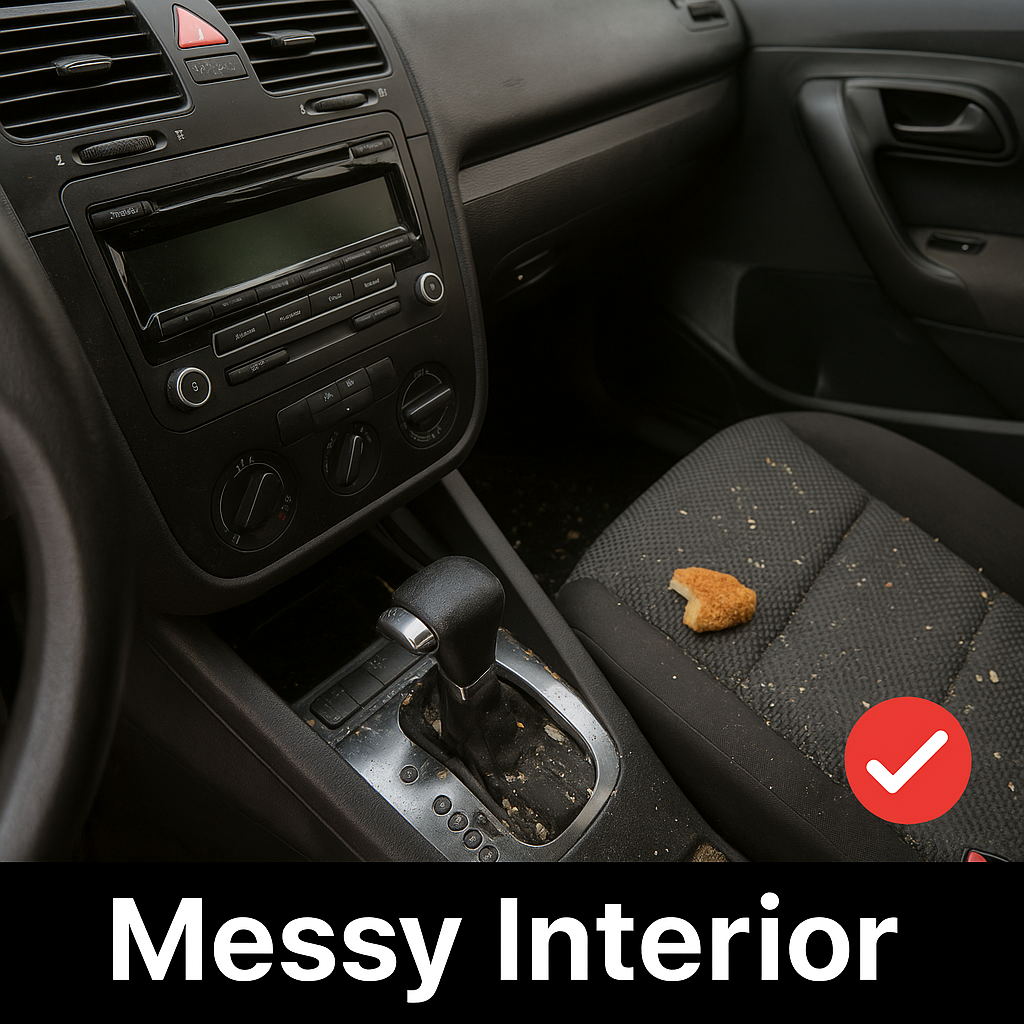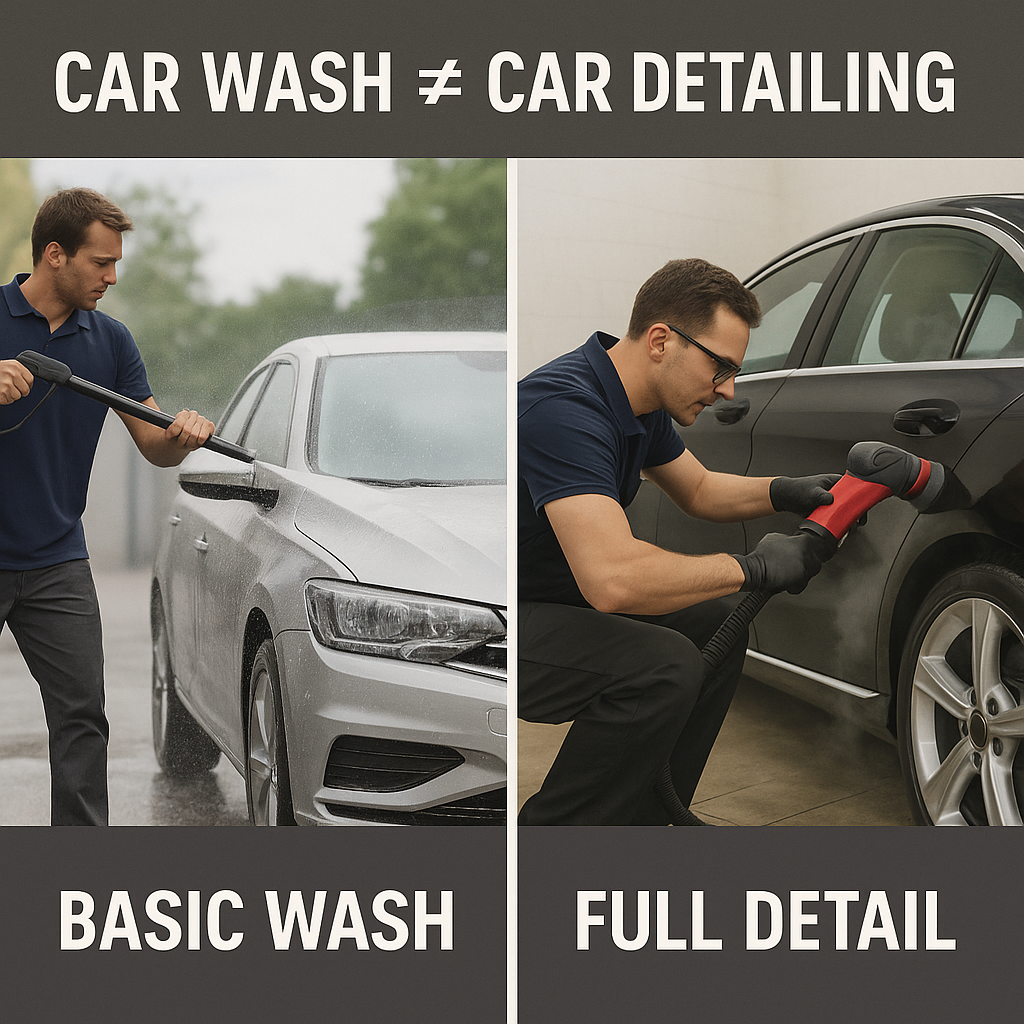Car detailing is more than just a luxury service – it’s an essential aspect of vehicle maintenance that protects your investment whilst keeping your car looking its absolute best. But how often should you detail your car? This comprehensive guide will help UK car owners understand the optimal detailing frequency for their specific circumstances, ensuring your vehicle remains in pristine condition throughout the year.
Understanding Car Detailing vs Regular Car Washing
Before diving into frequency recommendations, it’s crucial to understand the difference between car detailing and regular car washing. A standard car wash focuses on removing surface dirt and grime, typically taking 30–60 minutes. Car detailing, however, is a comprehensive process that includes deep cleaning, paint correction, protective coatings, and interior restoration – often taking several hours or even days for premium services.
Professional car detailing involves meticulous attention to every surface of your vehicle, from paint decontamination and polishing to leather conditioning and engine bay cleaning. This thorough approach is why the frequency differs significantly from your weekly car wash routine.
Industry Insight
The UK car detailing market is valued at £1.6 billion (source), with demand driven by urban pollution, harsh weather, and rising consumer awareness of paint protection and resale value preservation.
Factors That Influence Detailing Frequency
1. Driving Conditions and Environment
UK drivers face unique challenges that directly impact how often you should detail your car. Our unpredictable weather patterns, from heavy rainfall to road salt in winter, create harsh conditions for vehicle paintwork.
Urban drivers in cities like London or Birmingham encounter additional challenges, including pollution and traffic film, while rural areas battle mud and agricultural chemicals.
Pro Tip: Coastal owners should detail more frequently (every 2–3 months) due to salt air accelerating corrosion.
2. Vehicle Usage Patterns
Your driving habits significantly influence detailing frequency:
- Daily commuters: Benefit from quarterly detailing to combat road grime.
- Commercial vehicles: May need monthly exterior detailing to maintain a professional image.
- Weekend drivers: Can stretch to bi-annual services.
3. Vehicle Age and Condition
- New cars: Benefit from ceramic coatings (lasting 2–5 years) to preserve showroom condition.
- Older cars: May require paint correction every 6–12 months to address existing damage.
If you’re unsure what services are included in a full detail, check out our guide on what car detailing involves.
Recommended Detailing Frequencies by Vehicle Type
1. Daily Drivers and Family Cars
- Every 3–4 months: Optimal for most UK drivers.
- Winter prep: Add an extra autumn detailing session to protect against road salt.
- DIY maintenance: Wash every 2–3 weeks and use quick detailer sprays to extend coatings.
2. Luxury and Premium Vehicles
- Monthly detailing: Protects high-end paint and leather interiors.
- Ceramic coatings: Reduce maintenance frequency while offering superior UV protection.
3. Classic and Collector Cars
- Bi-annual intensive detailing: Before show season (April–September) and before winter storage.
- Monthly maintenance: During active use to prevent dust buildup.
Seasonal Considerations for UK Car Owners
| Season | Focus | Key Service |
|---|---|---|
| Spring | Decontamination | Remove road salt, clay bar treatment |
| Summer | UV protection | Ceramic coating application |
| Autumn | Winter prep | Underseal and interior waterproofing |
| Winter | Damage control | Monthly touch-ups for salt removal |
Data Point: 60% of UK drivers wash cars less than once a month, making professional detailing critical for paint preservation.
For help choosing a trusted expert, read our tips on finding a professional car detailer.
Signs Your Car Needs Immediate Detailing
Exterior Warning Signs
- Water no longer beads (failed protective coatings).
- Visible contaminants like tar or tree sap.
- Dull paint or swirl marks under sunlight.
Interior Indicators
- Persistent odors (requires steam cleaning).
- Cracked leather or UV-damaged dashboards.

Creating Your Personal Detailing Schedule
Budgeting for Regular Detailing
- Average UK cost: £200–400 annually for professional services.
- DIY savings: Initial kit investment (~£100) pays off long-term.
When to Call Professionals
- For paint correction or ceramic coating applications.
- If DIY efforts fail to remove embedded contaminants.
Conclusion
Determining how often you should detail your car depends on your vehicle type, environment, and usage. Most UK drivers benefit from quarterly professional detailing, supplemented with regular washing. For personalized advice, consult a UK detailing specialist.
Key Takeaway: Consistent detailing preserves your car’s value—well-maintained vehicles sell for 10–15% more.

